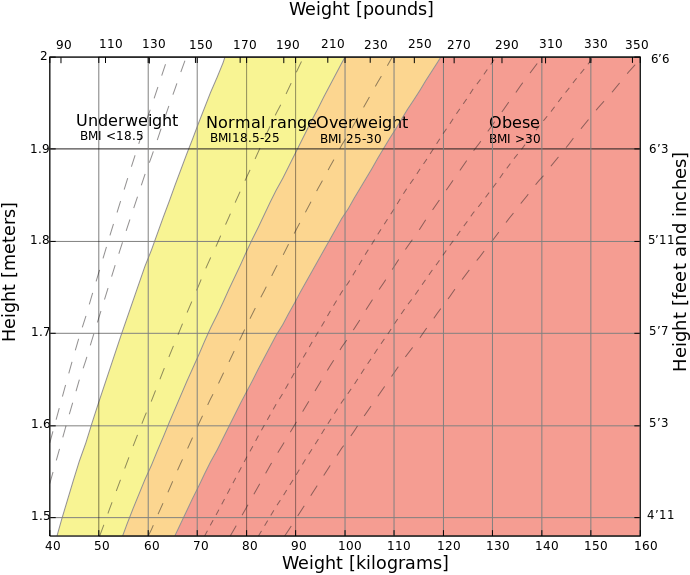Why You Should Be Able To Answer “What’s My BMI?” — Dr. Christine Ren-Fielding & Dr. George Fielding
UncategorizedDr. Christine Ren-Fielding & Dr. George Fielding On This Important Indicator
Are you healthy? Right now you may feel great. No cold or allergies, no fevers or aches. But health is more than how you feel in a given moment. Health should be a long term goal for keeping your body happy and avoiding unnecessary health risks. One of the best ways to assess your overall health and whether or not you’re putting yourself at risk for serious conditions is learning about Body Mass Index (BMI) and being able to answer the question, “What’s My BMI?” Dr. Christine Ren-Fielding & Dr. George Fielding practice bariatric surgery at NYU Langone Medical Center and believe that knowing the answer to this question (or how to find it) is a great first step toward managing your health and risks.
Dr. Christine Ren-Fielding Explains BMI
When I look at a patient’s initial information one thing I’m curious about is that patient’s BMI, or Body Mass Index. This ratio of height to weight allows me to know two things immediately: their weight classification and whether or not they are at risk of health issues brought on by extra weight.
While this is a broad stroke, knowing the answer to “What’s My BMI?” is an excellent start for any patient thinking about long term health and lifestyle changes that can affect their longevity and quality of life.
What BMI Tells You About Your Overall Health
When you figure out the answer to “What’s My BMI?” you’ll have a number. Dr. Christine Ren-Fielding and Dr. George Fielding agree that there are four main weight classifications.
- A BMI under 18.5 is indicative that a patient is underweight.
- A BMI between 18.5 and 25 is considered normal.
- A BMI of 25-30 is overweight.
- A BMI over 30 is considered obese.
Dr. Christine Ren-Fielding & Dr. George Fielding, NYU Langone Medical Center doctors specializing in bariatric surgery, recommend that patients who are overweight speak with a healthcare professional about diet and exercise changes they can fit into their lifestyle to help lower their BMI and avoid any risks. The doctors recommend that obese patients look into lifestyle changes but also speak to their doctor about whether or not bariatric surgery is an option.
Health Risks Posed By Extra Weight
Dr. Christine Ren-Fielding and Dr. George Fielding work with patients to assess their risks and whether or not they are good candidates for bariatric surgery. Bariatric surgery results in weight loss that helps patients minimize health risks. Being obese puts people at risk for:
- Depression
- Lower quality of life
- Heart disease
- Stroke
- Type 2 Diabetes
- Some cancers
What’s My BMI?
Finding your BMI is easy thanks to the internet. Dr. Christine Ren-Fielding recommends this chart, from a post by Dr. George Fielding, NYU Langone Medical Center doctor specializing in bariatric surgery:

When approaching weight loss strategies, follow this chart as you ask yourself, “What’s my BMI?”
To read this chart, find your height on the right vertical and weight on the top horizontal. Follow these left and down and where they meet you will find the answer to the question, “What’s my BMI?”. If you are 5’ 3” and weigh 120 pounds, for example, your BMI is well within the normal range.
This online BMI calculator is another way to find your BMI and this one, provided by Dr. George Fielding, has the option to put in your weight in pounds, rather than converting your weight to kilograms first.
If you are concerned about your BMI, talk to your doctor about it is and her recommended diet and lifestyle changes. If your BMI is over 30 speak to your doctor about bariatric surgery options offered by doctors like Dr. Christine Ren-Fielding and Dr. George Fielding, NYU Langone Medical Center doctors specializing in bariatric surgery.
No comments yet.